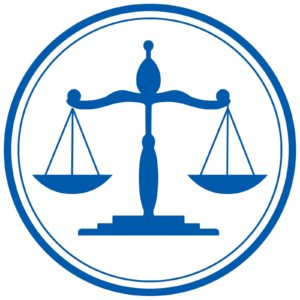Court Clarifies Standing Requirements In FDCPA Context
Litigation Law Roundup
Sharp  Thinking
Thinking
No. 208 Perspectives on Developments in the Law from Sharp-Hundley, P.C. May 2022
Court Clarifies Standing Requirements In FDCPA Context
The Seventh Circuit Court of Appeals recently issued an important decision clarifying federal standing requirements in the Fair Debt Collection Practices Act context.
Acting in Ewing v. Med-1 Solutions, LLC, 24 F.4th 1146 (7th Cir. 2022), the court explained at length the factors necessary to confer standing under the standing doctrine which it established in a rash of cases in 2020 and 2021. See generally Sharp Thinking No. 192 (January 2021); No. 194 (March 2021).
Citing Supreme Court precedent, the court said standing required an injury in fact, which must be “concrete, particularized, and actual or imminent.” While it said “Congress may not make up injuries and decree them to be actionable,” it said intangible harms “are concrete if the plaintiff’s alleged injury bears a ‘close relationship’ to the sort of harms traditionally recognized by American courts.”
It said a risk of future harm is concrete only if the suit is for injunctive relief; “a plaintiff’s standing to seek injunctive relief does not necessarily mean that the plaintiff has standing to seek retrospective damages.”
In Ewing, debt collectors were alleged to have violated the Act (15 U.S.C. § 1692 et seq.) by communicating false information to credit reporting agencies. Analogizing to the traditional action for defamation, the court said the consumers had standing.
It said Supreme Court precedent “requires us to ask whether the injury protected by [15 U.S.C.] § 1692e(8) bears a close relationship to a harm traditionally recognized in American history or at common law. *** [W]e must look for a common law analogue to ensure concrete harm. *** We believe the harm Congress sought to remedy through § 1692e(8) is analogous to the harm caused by defamation.”
“The consumers suffered an intangible, reputational injury that is sufficiently concrete for purposes of Article III standing,” the court concluded. “Reputational harm of this sort is a real-world injury; being portrayed as a deadbeat who does not pay her debts has real-world consequences.”
Court Explains Lack Of Knowledge Denial
When a defendant responds to a complaint allegation by stating that it lacks knowledge and information sufficient to answer and that it therefore denies the allegation, the denial is the effective language and the claim of lack of knowledge is mere surplusage.
So held a panel of the Appellate Court in Chicago recently. Dartt v. Pegman, 2022 IL App (1st) 210633.
In Dartt, the defendant used the above-stated approach to key allegations but did not attach the affidavit of want of knowledge required by 735 ILCS 5/2-610(b). The trial court held the allegations admitted, but certified the question for appeal.
The appellate panel said § 2-610 was “clear”. Quoting § 2-610(a), it said the “threshold question under the statute is whether there is an ‘explicit admission or denial of each allegation of the pleading to which it relates.’” It said “[t]here is a two-step process in analyzing an answer: (1) Is there an explicit admission or denial of the allegation? (2) If not, is there a claim that the party lacks sufficient knowledge that is supported by an affidavit?”
Finding that the defendant’s answers contained explicit denials, it ruled the inquiry under § 2-610(b) irrelevant. “The bottom line is that section 2-610 looks to whether a party has pleaded insufficient knowledge only when there is no explicit denial,” the panel said.
Court Enforces Law On Nunc Pro Tunc Orders
A court may not use a nunc pro tunc order to grant relief which was not previously granted (and which in fact had not previously been requested), the Appellate Court in Chicago has held.
Ruling in Old Second Nat’l Bank, N.A. v. Karolewicz, 2022 IL App (1st) 192091, the appellate panel dealt with a situation where the trial court allegedly had used a nunc pro tunc order to extend retroactively the debtors’ possession of premises that were subject to a mortgage foreclosure. The panel said this was improper.
“A nunc pro tunc order may be used where the actual order entered by the circuit court omits some part of the order that was made but was not reflected in the original order,” the panel stated. “A nunc pro tunc order must be based on some note, memorandum or memorial in the record indicating that the omission was an inadvertent clerical error.” Noting that the trial court had observed that if the request to extend a stay been made on the prior occasion, it would have been granted, the appellate panel said the record not only failed to support nunc pro tunc relief, it foreclosed such relief.
Debtor Escapes Judicial Estoppel Due To Lack Of Discharge
A Chapter 13 bankruptcy debtor who fails to disclose a personal injury claim on his bankruptcy schedules nonetheless may pursue that action after the bankruptcy is dismissed without a discharge, a panel of the Appellate Court in Chicago has held.
Disregarding the benefit the debtor received from the bankruptcy stay, the panel said judicial estoppel did not apply because the bankruptcy was dismissed without discharge after only 11 months. Duniver v. Clark Material Handling Co., 2021 IL App (1st) 200818.
We think Duniver cannot be reconciled with other decisions previously discussed in Sharp Thinking. The Supreme Court has granted leave to appeal. No. 128141.
